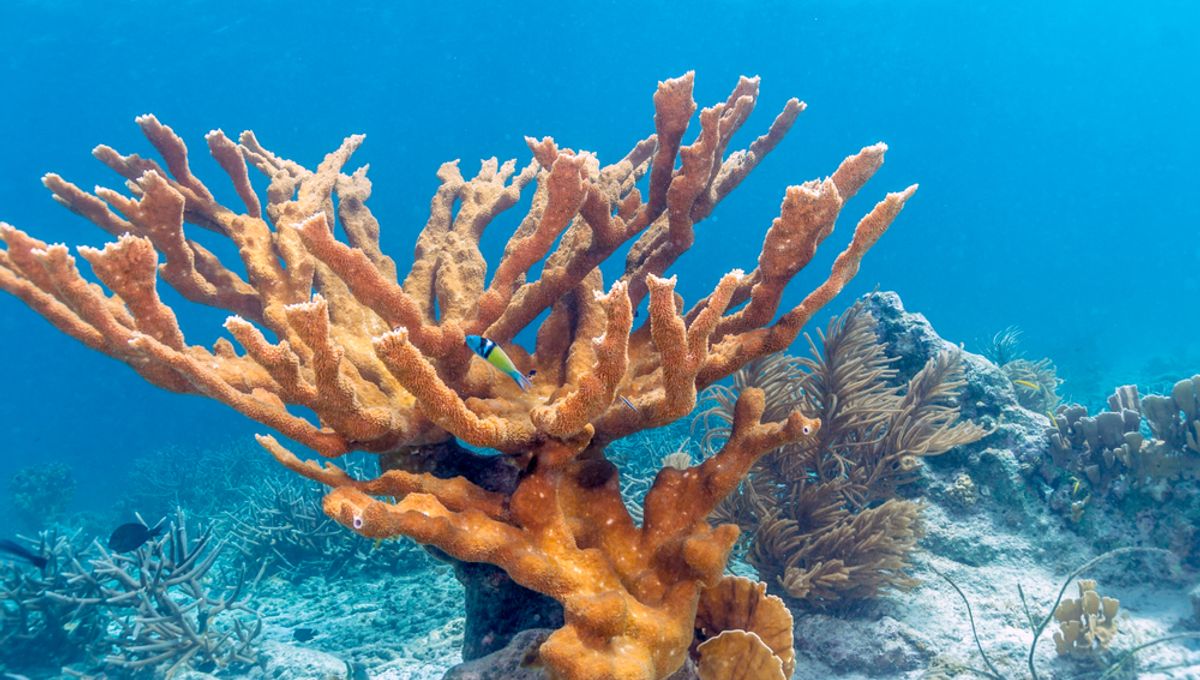
Before there was Darwin, evolution had Lamarck, who proposed traits developed during an individual’s lifetime could be passed onto their offspring. Although intuitively appealing, the idea failed many experiments and has been widely rejected since the late 19th century. However, something resembling Lamarckian inheritance has now been described in corals, and they may not be the only life forms in which it occurs.
Lamarck envisaged a world where someone who exercised their muscles, or their brain, might pass onto their children greater capacity in that area. A paper in Science Advances reports a different but related capacity in corals: the passing on of random mutations that would ordinarily fall by the wayside. This is still much closer to Lamarckism than most biologists expected we’d ever get.
“For a trait, such as growth rate, to evolve, the genetic basis of that trait must be passed from generation to generation,” said Professor Iliana Baums of Penn State University in a statement. “For most animals, a new genetic mutation can only contribute to evolutionary change if it occurs in a germline or reproductive cell, for example in an egg or sperm cell. Mutations that occur in the rest of the body, in the somatic cells, were thought to be evolutionarily irrelevant because they do not get passed on to offspring. However, corals appear to have a way around this barrier that seems to allow them to break this evolutionary rule.”
Genetic mutations are common, but evolution is usually quite slow. In part, this is because most mutations are harmful or neutral – but even those that are beneficial seldom get passed on to subsequent generations.
“In most animals, reproductive cells are segregated from body cells early in development,” said graduate student Kate Vasquez Kuntz. Mutations in the reproductive cells may be passed on, but those in the rest of the body are not.
Corals can reproduce asexually through budding, which passes mutations on. However, they also reproduce sexually, for example in the Great Barrier Reef’s extraordinary mass spawning events
Individual coral colonies produce both sperm and eggs, but having eggs from one colony fertilized by sperm from a neighbor enhances genetic diversity and helps protect against parasites, so this is the norm.
Sometimes, however, Elkhorn coral fertilizes itself. This greatly reduces the number of potential genetic outcomes in offspring, which made it easier for researchers to look for evidence of the transmission of mutations from non-reproductive (somatic) cells.
The paper reports that 50 percent of the somatic mutations in a large Elkhorn colony were inherited in corals produced by single-parent sexual reproduction.
If that is the only time it happens, the implications might be small – but the authors report preliminary evidence for it also occurring in colonies with two parents, which they hope to confirm.
The authors acknowledge they don’t yet know how mutations get from the somatic to reproductive cells, but think the differentiation between the two is incomplete.
For most animals, passing on somatic mutations would be disastrous, since so many are harmful. However, Baums thinks the approach may work for corals because of attributes most other multi-celled lifeforms don’t share. “Because corals grow as colonies of genetically-identical polyps, somatic mutations that arise in one coral polyp can be exposed to the environment and screened for their utility without necessarily affecting the entire colony,” she said.
Moreover, the capacity to pass mutations on should enable corals to respond faster to changes in the environment – great news considering the threats they currently face.
Evidence for Lamarckian evolution has been reported now and then in relatively simple organisms, but has not been widely accepted. Proponents attribute this to revulsion against Trofim Lysenko, who made Lamarckism orthodoxy in the Soviet Union under Stalin, with disastrous consequences both for dissenting scientists and agricultural production.
Source Link: Corals Have Been Found Breaking One Of Evolution’s Key Principles